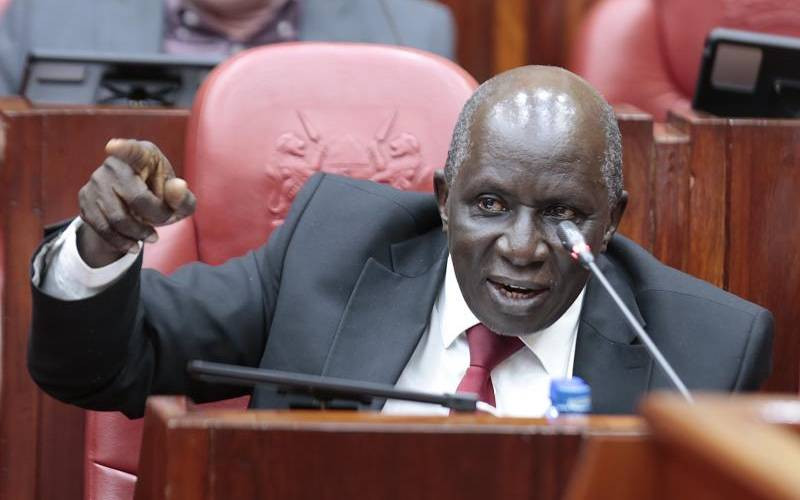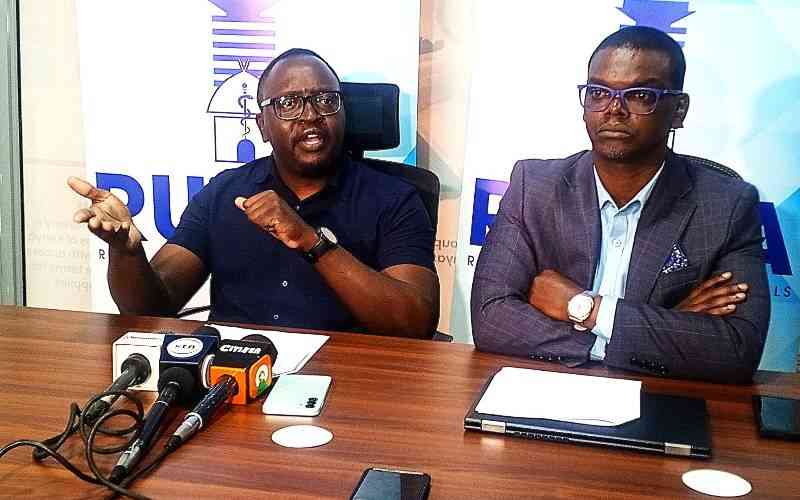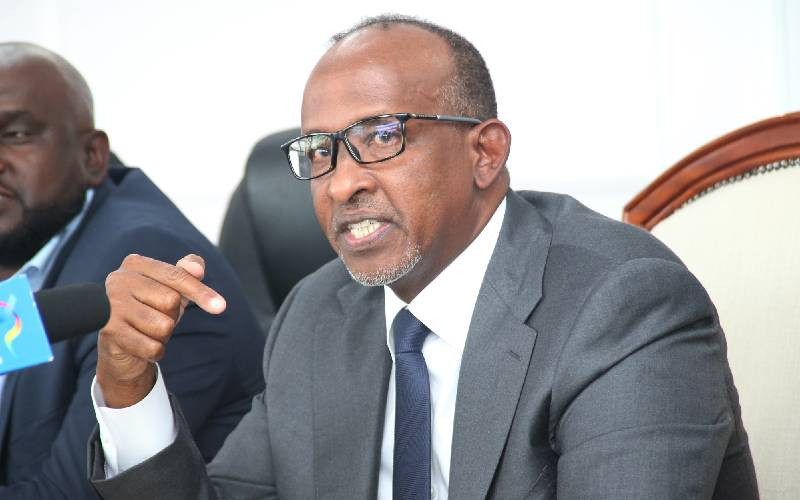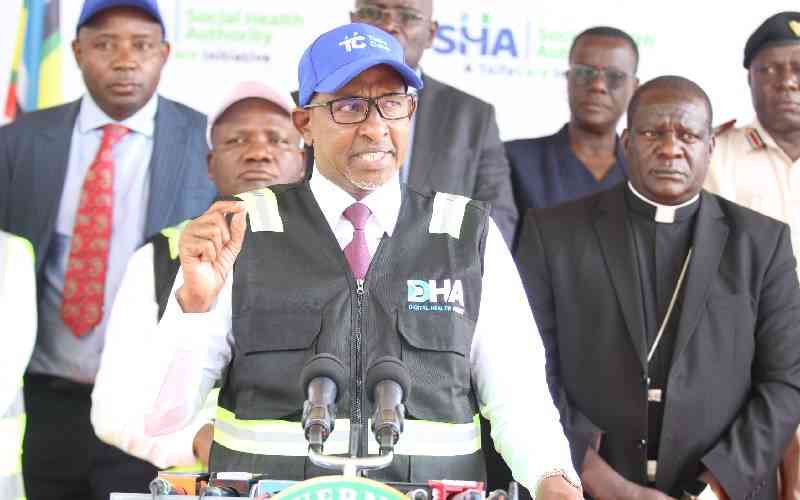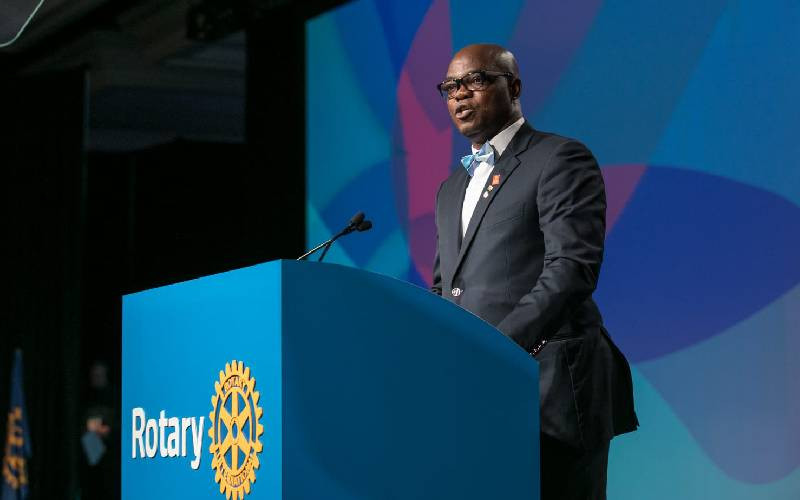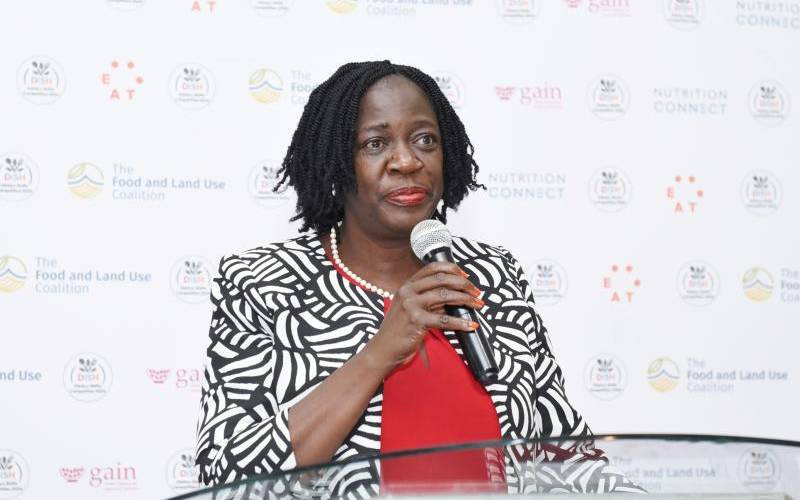
Driven by a deep sense of purpose and a commitment to save every girl and woman from cervical cancer, a preventable disease, Dr Diana Wangeshi’s dedication is unwavering.
She is passionate about improving awareness of cervical cancer prevention and lobbying for governments, partners, and stakeholders to address the disparities in access to cervical cancer prevention, treatment, and management.
Her dedication to her field is driven by an innate desire to make a tangible difference daily through her work in the classroom, policy forums, and humanitarian field.
Wangeshi wears and balances many hats as a researcher, educator, published author, a Bravo Guide and a peer reviewer. She believes that strong, updated and effective policies are essential in the fight against cervical cancer in Kenya and Africa.
Despite the long hours of technical work, she is deeply empathetic and understands the profound impact of cervical cancer on patients and their families.
Her PhD research focused on cervical cancer policies in East Africa to address the substantial burden of the disease in Sub-Saharan Africa, grounded by findings that among the 20 countries with the highest cervical cancer death rates globally, 17 are in Africa and three in Asia.
“I believe that policies lay the foundation for everything,” she said.
- Early detection: Lucy's cervical cancer journey and key lessons for you
- Religious leaders to convene on maternal mortality and cervical cancer in Africa
- When faith meets science: Religious leaders endorse cervical cancer jab
- Not just a lump: How patients and families struggle after the diagnosis
Keep Reading
“We need to address outdated policies, delayed diagnoses, low awareness, insufficient primary healthcare resources, prolonged result wait times, ineffective treatment strategies, poor screening procedures, and inadequate follow-up care that ultimately hinder progress in the fight against cancer,” she said.
Intrigued by the lower prevalence of cervical cancer in Western countries,despite their struggles with breast cancer, she sought to understand their management strategies.
In Kenya, cervical cancer is the second most common cancer and the leading cause of cancer-related deaths.
According to Dr Wangeshi, cervical cancer is a silent disease due to the initial symptoms that may be ignored, the top reasons most women fail to be screened early enough until it’s too late. The condition is at an advanced stage.
Cervical cancer is mainly caused by Human papillomavirus (HPV) 16 and 18 and can be a sexually transmitted disease.
Through her policy and advocacy agenda, she is driven by a passion to make screening more effective, affordable, and widely available, especially in low-resource settings.
Her research provides evidence on effective interventions and highlights the necessary refinements of health policies through legal mapping to identify and assess health policies for preventing and managing cervical cancer in East African countries.
Outdated policy
Through policy mapping, Dr Wangeshi researched policy documents from Kenya, Rwanda, Uganda, Tanzania, Ethiopia, Eritrea, Djibouti, Somalia, Madagascar, DRC Congo, and Burundi, including strategic plans, Acts of Parliament, and other guidelines addressing cervical cancer, using a checklist to assess their approaches.
Her research showed that, except for Djibouti and Somalia, where documents were unavailable, the other 10 countries had policy documents, though many were outdated and poorly implemented.
She shares insights from her scholarly work.
“Tanzania using a policy document of 1991, an indication that they were using outdated policies, although new information is being churned out each day.”
Her research also highlighted that while all countries recognise the potential of the HPV vaccine in cervical cancer prevention, some do not fully adhere to WHO guidelines.
She cited the reliance on Globocan’s estimated data due to the lack of country-specific data. Dr. Wangeshi suggests investing in hospital registries to provide accurate, up-to-date information.
“The government should collaborate closely with local communities to develop effective policies, ensuring that tangible data from the ground inform decisions. This will help identify what works and what doesn’t, “she said, adding that there has been a lack of legal transparency, with some policies being non-binding or recycled.
Her second study, focused on HPV vaccine uptake in Tana River and Mombasa Counties, examined stakeholder attitudes, including teachers, parents, children, community leaders, and healthcare workers.
The study showed significant misinformation and misconceptions about the HPV vaccine, attributed to inadequate pre-vaccination preparation and capacity building for community and healthcare leaders.
Rotary International has been instrumental in public health initiatives through advocacy, funding, and outreach programs; they work with Rotary clubs globally to implement vaccination drives, awareness campaigns, and mobile screening camps in underserved areas.
In 2023, United to End Cervical Cancer in Egypt was awarded Rotary’s third annual Programs of Scale award, a $2 million grant from The Rotary Foundation.
As a Rotary Club of Nyeri member, Dr. Wangeshi participates in awareness campaigns in the communities and churches and encourages women to take regular Pap smears and HPV DNA testing.
She recommends engaging community and religious leaders to dispel misconceptions and address fears, especially those expressed by healthcare workers, which reflect gaps in their understanding based on their education.”
Other myths included fears that the vaccine could harm girls’ reproductive systems or contribute to depopulation and infertility.
Dr. Wangeshi advocates for including the HPV vaccine in the national immunisation schedule and government-led campaigns.
According to her, sensitisation and awareness are crucial in tackling cervical cancer. By educating women about HPV, its progression to cervical cancer, the importance of regular screenings, and the need for vaccination, we can ensure more women are informed and empowered to take preventive action.
“We also need to begin with the basic knowledge of biology like what a cervix is, what happens when you get an HPV infection and how the body can clear the infection on its own, and that continuous HPV infection may lead to cervical cancer because the body will not be able to fight it due to the series of infections,” she explains.
She also emphasizes the importance of understanding basic facts, such as the fact that cervical cancer can occur even without sexual activity, as it develops when cervical cells undergo continuous changes. Additionally, she stresses that any woman can contract HPV, regardless of sexual history.
“I am a passionate advocate for HPV vaccination and cervical cancer screening. Whenever I have the chance to speak, I prioritise raising awareness about cervical cancer. I strongly encourage women over 21 to get screened, as cervical cancer is both preventable and highly treatable when detected early.,” she said.
A balancing act
Dr. Wangeshi authored her story, ‘Despite Everything: A Memoir on Family, Resilience and the PhD Journey’.
She shares her journey to inspire women to pursue their dreams while balancing family and career, demonstrating how she successfully navigated both while earning her PhD in Health Sciences from the University of Debrecen, Hungary.
She recounts the emotional challenge of leaving her children to pursue her studies.
“I faced the fear and anxiety of leaving my family behind to pursue my scholarship. Despite all the uncertainties and worries, I decided to move forward and promised to document my journey to inspire other women facing similar challenges.” She concluded
The journey to overcoming personal or societal challenges is never easy. Dr Wangeshi believes that by working together and being united in purpose and action, we need to advocate for change, promote education, and build a brighter, healthier future for all.
 The Standard Group Plc is a multi-media organization with investments in media
platforms spanning newspaper print
operations, television, radio broadcasting, digital and online services. The
Standard Group is recognized as a
leading multi-media house in Kenya with a key influence in matters of national
and international interest.
The Standard Group Plc is a multi-media organization with investments in media
platforms spanning newspaper print
operations, television, radio broadcasting, digital and online services. The
Standard Group is recognized as a
leading multi-media house in Kenya with a key influence in matters of national
and international interest.


